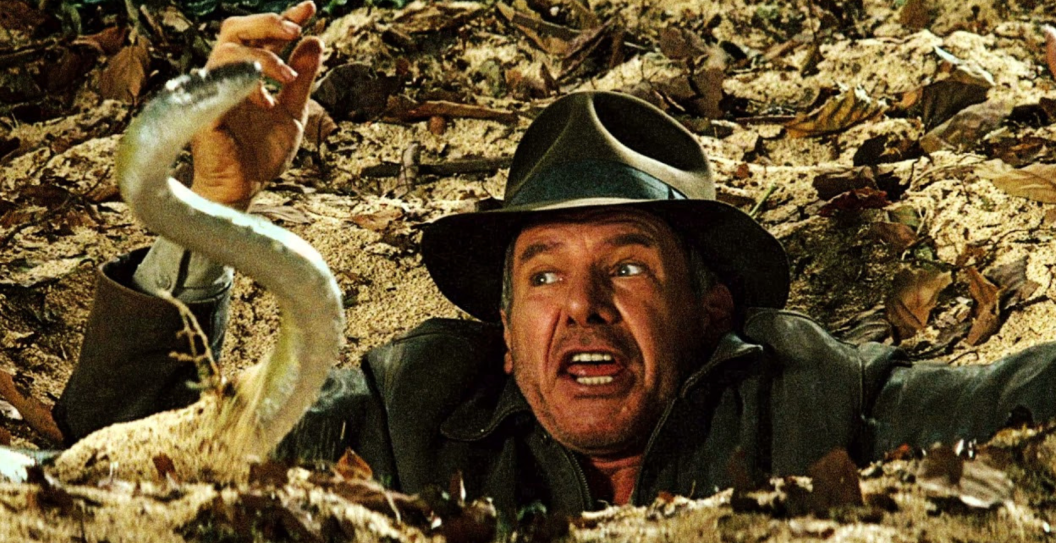Harrison Ford's Indiana Jones is known for a crippling fear of snakes, an exceptionally disadvantageous phobia considering how much time the adventurous archaeologist spends exploring jungle environments. "Snakes. Why'd it have to be snakes?" Indy bemoans when confronted with a pit full of the slithering reptiles in the 1981 blockbuster Indiana Jones and the Raiders of the Lost Ark. And ironically, researchers just named a newly-discovered species after Ford.
Videos by Wide Open Country
The species is called Tachymenoides harrisonfordi and was found by Peruvian and American researchers in Peru's Andes mountains. The snake is characterized by a slender body that can reach a length of 16 inches and displays a pale yellowish-brown hue adorned with random black blotches. Its underbelly is black, and it sports a vertical streak above its copper-colored eye, providing effective camouflage within its natural surroundings. In May 2022, a solitary male snake was discovered sunbathing in a swamp at the Otishi National Park.
Scientists gave the snake Ford's name in honor of the 81-year-old actor's decades-long environmental advocacy efforts. He serves as the vice chair of Conservation International, which combines "fieldwork with innovations in science, policy and finance" to help protect "more than 6 million square kilometers (2.3 million square miles) of land and sea across more than 70 countries."
"These scientists keep naming critters after me, but it's always the ones that terrify children. I don't understand. I spend my free time cross-stitching. I sing lullabies to my basil plants, so they won't fear the night," said Ford, who also inspired the name of an ant (Pheidole harrisonfordi) and a spider (Calponia harrisonfordi). "In all seriousness, this discovery is humbling. It's a reminder that there's still so much to learn about our wild world — and that humans are one small part of an impossibly vast biosphere. On this planet, all fates are intertwined, and right now, one million species are teetering on the edge of oblivion. We have an existential mandate to mend our broken relationship with nature and protect the places that sustain life."




